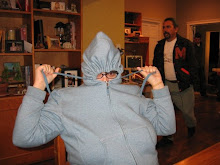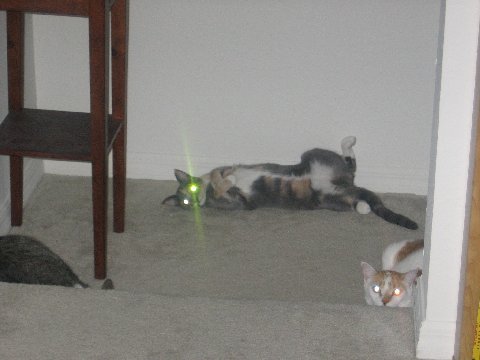
This book was provided to me by the publisher, Workman Publishing, through LibraryThing's Early Reviewer program.
The Instinct Diet is a weight-loss plan that touts the five natural food instincts as a way to lose weight. I've spent most of my adult life embroiled in the Battle of the Bulge, so I'm always looking for new ways to lose weight and new weight-loss programs. I've been on Weight Watchers at least twice, and it is, in my opinion, the gold standard of weight-loss programs. I've always been successful when I've stuck to the program, but after a while, I seem to get sidetracked and cease following it, which is when disaster strikes and I gain all the weight back. The Instinct Diet, like most diets, is supposed to make it easy to lose the weight and to keep it off.
Some of the tenets of the Instinct Diet were familiar to me, as they are common in most weight-loss regimes: get rid of the "bad" foods in the house (if they're not there, you can't eat them), make sure you get enough fiber and protein (so you feel satisfied and less inclined to snack). But the program is more than that. There are three other food instincts addressed by this specific diet. And the Instinct Diet does not really focus on exercise. Dr. Roberts says that you really don't NEED to exercise in order to lose weight, if you follow her plan to a T.
I have to say, while I wanted to buy into it, I don't see the Instinct Diet as a program I could successfully follow. The lists of high-fiber foods that are available during the eight-week weight loss portion of the diet (as opposed to the maintenance portion, which lasts as long as you want to keep the weight off) sound completely disgusting to me. And the portions recommended do not seem substantial enough to provide adequate nourishment for me. Granted, I am not a dietician or scientist like Dr. Roberts is, so maybe I just don't know what I'm talking about, but I can honestly say there is no way in hell that I would be satisfied with a turkey sandwich containing exactly one piece of turkey lunchmeat. That just seems crazy to me! I wanted to try the diet as part of my review of the book, but I couldn't open my mind enough to want to eat the things that are required eating during the first two weeks of the diet. Perhaps this is merely a motivation issue for me, and once I am again motivated to lose weight maybe I'll try it. It certainly seems like the science behind the plan is sound; it's just a matter of personal choice for me that I would prefer a plan with more freedom of choice.
Some of the recipes sound good, though, and I plan to keep the book and try some of them out. Overall, I'd give the book two and a half out of five Whatevers. It was interesting information, some of which I already knew, but it was nothing stunning, and the diet itself seemed unworkable, at least for me.
2011-12



